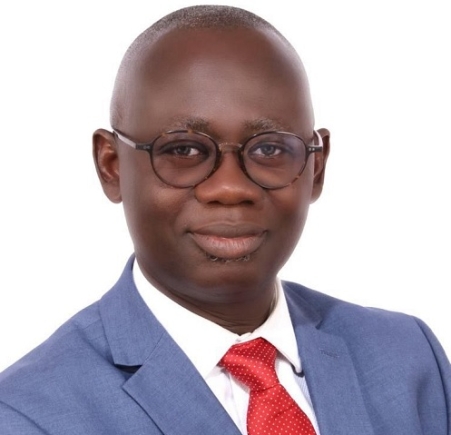
Cancellation of double track policy will hinder access to free SHS — Prof. Opoku-Amankwa
A former Director-General of the Ghana Education Service (GES), Professor Kwasi Opoku-Amankwa, has defended the double track policy introduced in 2018, describing it as the umbilical cord of the free senior high school (FSHS) programme.
He explained that any attempt to cancel the double track/transitional calendar would deny an estimated 1,800,000 students access to the free SHS, technical, vocational education and training (FSHS/TVET).
“The free SHS was meant to give access. So, if you are going to deny people access, then you defeat the purpose of the free SHS,
“The double track is the umbilical cord of the free SHS because once you stop the double track, you will deny about a third of the students access to free SHS,” the former DG of the GES said in an exclusive interview in Accra.
Prof. Opoku-Amankwa was sharing his opinion on the raging debate in the educational sector, especially the free SHS, which came with the introduction of the double track policy and the teacher licensure.
The double track programme was implemented in 400 SHSs across the country to address the high demand for education and the inability of existing facilities to accommodate the increase in enrolment.
Politics
Excited that both the New Patriotic Party (NPP) and the National Democratic Congress (NDC) had promised to maintain the free SHS programme, Prof. Opoku Amankwa was, however, worried that while the NPP was pledging to enhance and protect the free SHS policy, the NDC was focused on abolishing the double track system within 100 days in office.
He insisted that the focus should not be on “abolishing the double track because once you abolish it, then you have virtually cancelled the free SHS.
“The double track schools now operate a transitional calendar, which allows schools to make maximum use of available spaces.
“A transitional calendar allows schools to operate without dividing any year group into two or double tracking any year group: No Green or Gold Tracks,” he explained.
Nkrumah/Nana Addo educational policies
Likening the free SHS to Ghana’s first President, Dr Kwame Nkrumah’s Education Act 1961(Act 87), which made six years of primary followed by four years of middle schooling fee-free and compulsory, Prof. Opoku-Amankwa said today, those policies that Dr Nkrumah brought that met resistance, were now being hailed.
“Posterity has vindicated Dr Kwame Nkrumah on his numerous policies, including the implementation of the Education Act 1961 (Act 87).
“Posterity will equally vindicate President Akufo-Addo on his numerous policies, particularly on the implementation of the free Senior High School (FSHS),” he stated.
He said the two policies shared similar objectives to widen access to education, adding that Dr Nkrumah’s policy focused on the primary and middle school levels.
Prof. Opoku-Amankwa added that also, in those days, the policy sought to create awareness of the need and importance of education for national development, especially among rural and economically disadvantaged communities.
Enrolment
The former GES DG stated that at the beginning of the new school year in September 1961, nearly 57 per cent more children — 219,480 compared to 123,407 children the previous year — entered Primary One.
“According to the Ministry of Education Report of 1963, temporary structures were put up and other accommodation were pressed into service, so that in all, 2,000 new primary schools were opened, ... where no extra buildings could be found, a two-shift system was adopted, and at the beginning of the school year, 832 primary and middle schools had classes operating in this way,” he recalled.
Juxtaposing it with the free SHS policy, Prof. Opoku-Amankwa said, “In September 2017, barely eight months into office, and exactly 56 years after Dr Nkrumah’s fee-free primary and middle school education, President Akufo-Addo implemented the free SHS in fulfilment of his long-standing manifesto promise.”
He explained that the purpose of free SHS was to provide free, universal equitable access to quality secondary education that prepared and equipped the youth with employable skills for the world of work and aptitude for further academic work.
